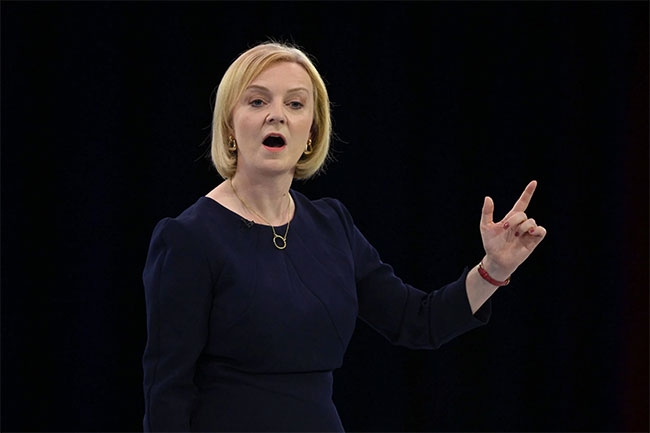Liz Truss elected as Britain’s new Prime Minister

Liz Truss on Monday was elected as Britain's new Prime Minister, defeating Rishi Sunak. She has also been named as the leader of the governing Conservative Party.
Truss will succeed Boris Johnson and is poised to take power at a time when the country is facing a cost of living crisis, industrial unrest and recession fears.
Earlier in July this year, Johnson was forced to resign from Prime Minister's position after months of scandal. He will travel to Scotland to meet Queen Elizabeth on Tuesday to officially tender his resignation. Truss will follow him and be asked to form a government.
Long the front-runner in the race to replace Johnson, Truss, has become the Conservatives' fourth Prime Minister since 2015 election. Over that period the country has been buffeted from crisis to crisis, and now faces what is forecast to be a long recession triggered by sky-rocketing inflation which hit 10.1% in July.
Truss, 47, had promised to act quickly to tackle Britain's cost of living crisis, saying that within a week she will come up with a plan to tackle rising energy bills and securing future fuel supplies, as per media reports.
Speaking in a TV interview on Sunday she had declined to give details of the measures and said will reassure millions of people who fear they will be unable to pay their fuel bills as winter approaches.
She declined to comment on a report that her energy plan could exceed 100 billion pounds ($115 billion), but the lawmaker tipped to be her finance minister, business minister Kwasi Kwarteng, wrote on Monday that the government could afford to borrow more to fund support for households and businesses.
Truss, during her leadership campaign, had signalled she would challenge convention by scrapping tax increases and cutting other levies that some economists say would fuel inflation
That, plus a pledge to review the remit of the Bank of England while protecting its independence, has prompted some investors to dump the pound and government bonds.
Kwarteng sought to calm markets on Monday, saying in an article in the Financial Times newspaper that under Truss there would need to be "some fiscal loosening" but that her administration would act in "a fiscally responsible way."
